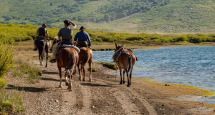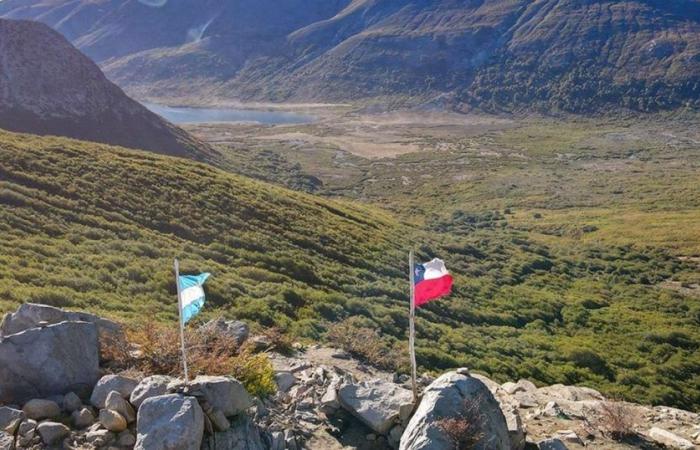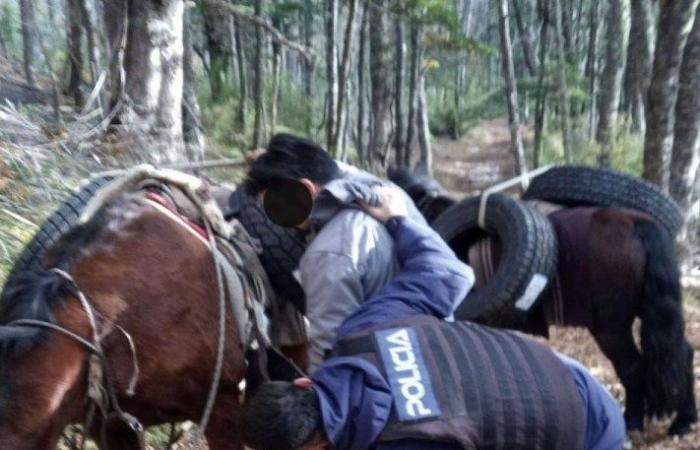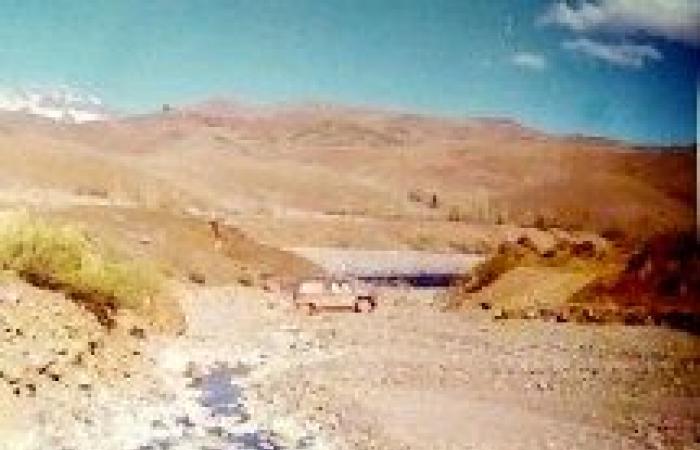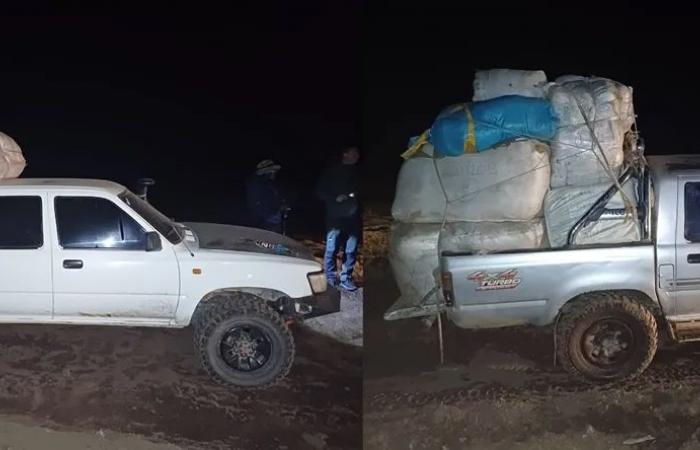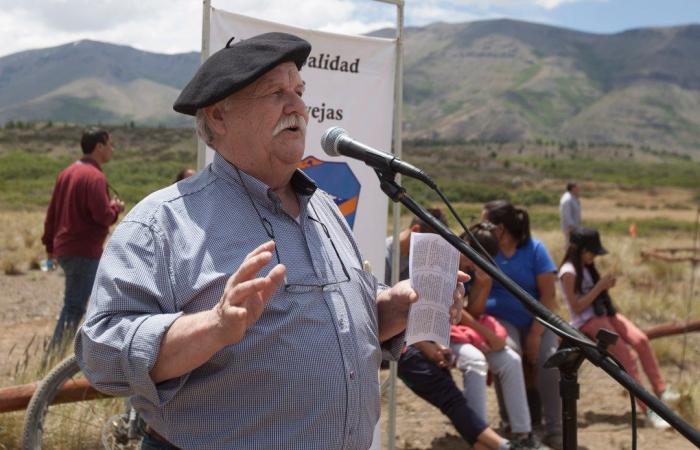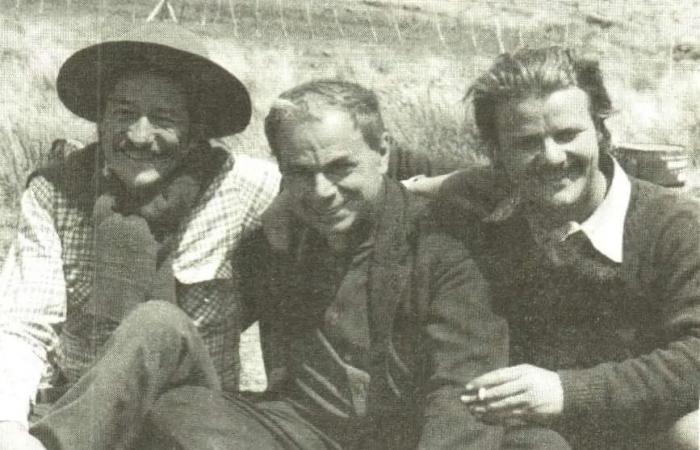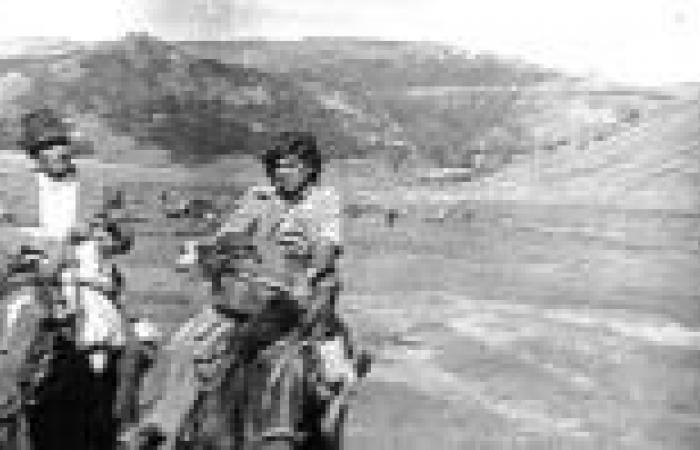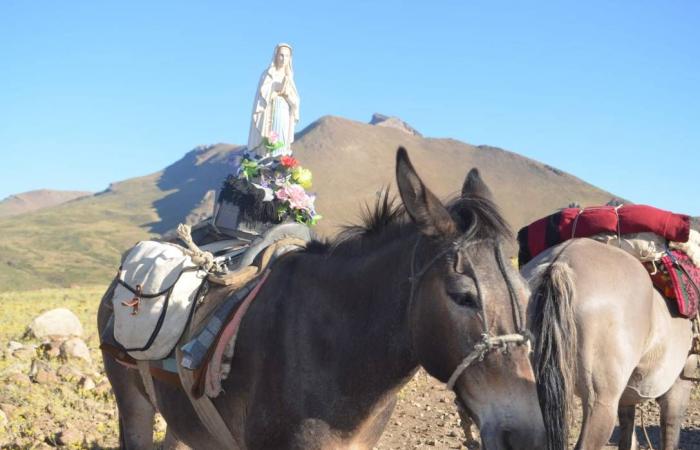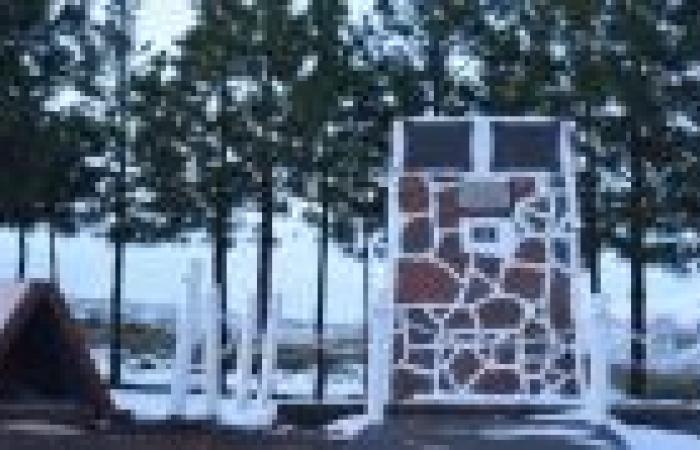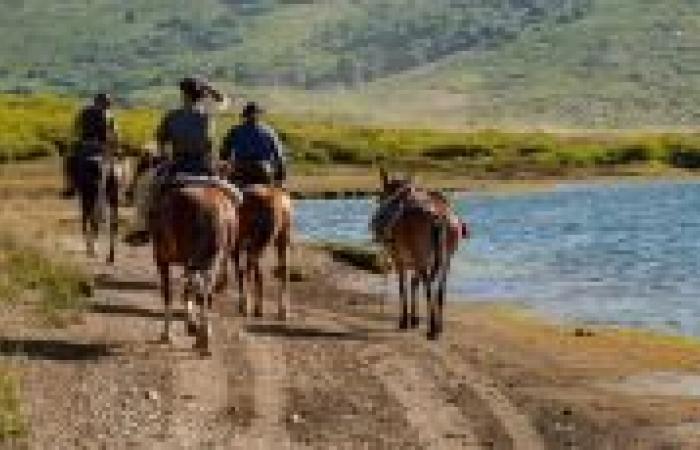Among the news that caught the attention of historian Isidro Belver in the last three months while he was complaining about the Internet connection in Huingancothere are four related to an ancient practice in the Neuquén mountain range: the clandestine crossing of products from one side to the other between Argentina and Chile.
The first: two Chileans entered with cfour tires on horseback and were discovered in the Lanín National Park three kilometers from the border, in the south of the province. Later, in the Gendarmerie detachment, they said that they took them for men of Aluminé and Ñorquinco. They carried a 9 millimeter pistol.
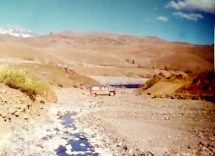
The second: the truck driver who was carrying a lot of cows and when he was stopped at the Gendarmerie checkpoint passing Pichi Neuquén, the last place above and to the west of the provincial map, on the border with Mendoza and Chile, he said that he was transferring them to the summer post. Small detail: it was already autumn, the icy days of winter were approaching and he could not defend his case. They didn’t let him pass.
The third: the complaint of a stall holder at the police station The sheep that one of their herding dogs had been shot led to a raid on a summer field where boxes containing 500 packs of cigarettes were confiscated. That procedure led to another: five men were trying to transfer tires, technological products and clothing in two vans from Chile to ArgentinaThey monitored the passage with a drone in Vaca Lauquen in northern Neuquén. They were intercepted. One was a policeman.
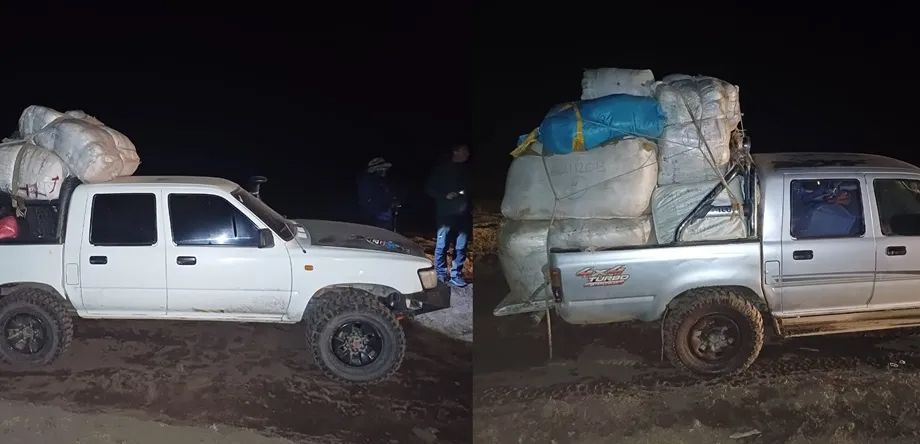
The fourth: the covers for neighbors of Chos Malal who went from Bolivia to Misiones, from there to Santiago de Chile, to Concepción and from there to northern Neuquén.
“This comes from afar”
“This comes from afar,” says Don Isidro, the priest whom Bishop Jaime de Nevares sent missionaries to the north of Neuquén in the 70s and after leaving the habit he became a notable and generous historian that shares its knowledge and collections, books, magazines, stories and valuable documents in the free access digital library Neuteuca.
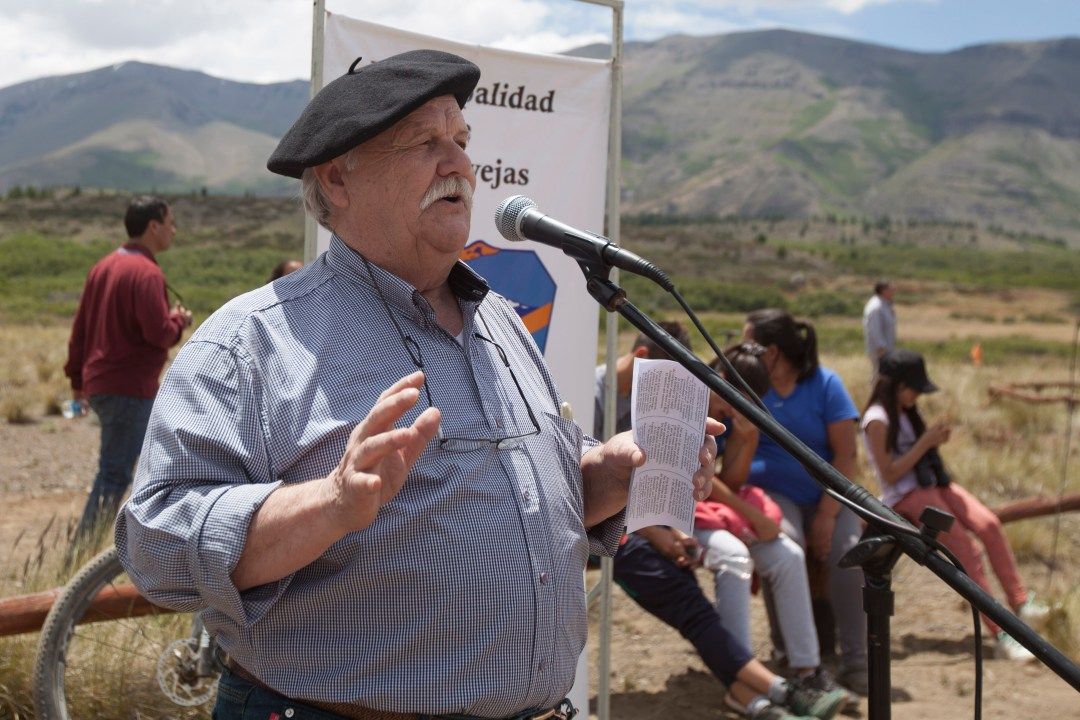
“Packages for the bishop”: The coded message that Don Jaime de Nevares requested to protect Chileans
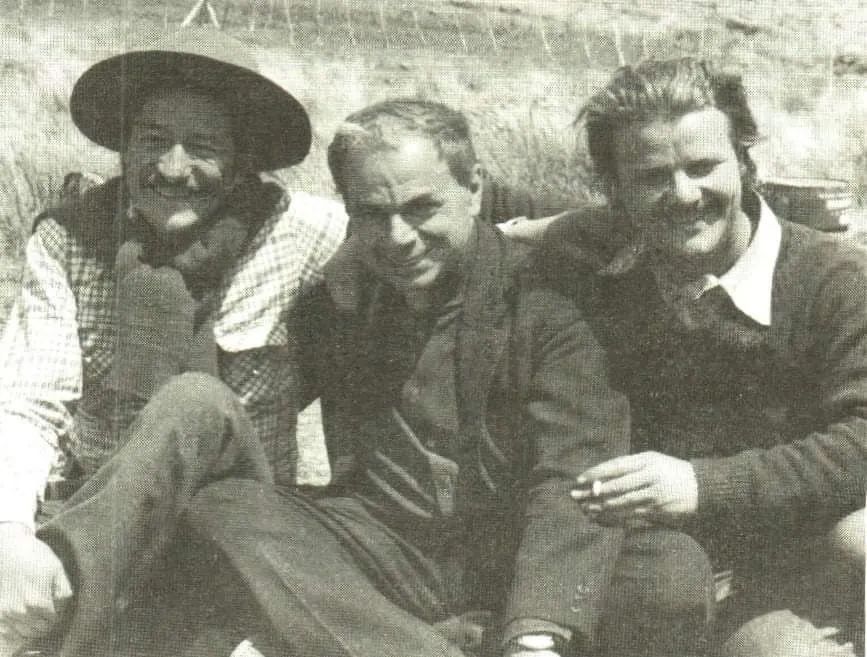
He then tells us that in the turbulent first years of his mission in the north, when Chileans crossed through uncontrolled crossings To escape from Pinochet’s bloody dictatorship, Don Jaime asked when he found out that he or Father Juan would be notified of each case, that he or Father Juan would receive and help them in the capital of Neuquén. He then asked him how, because the only chance of contact was the police network. “Use it. If there are two of you, say that two packages are for the bishop.”Isidro remembers and laughs heartily.
“Before they arrived we were dedicated to commerce, now we are dedicated to smuggling”
Also remember a notable phrase, that of a resident with a commanding voice in Guañacosa place in northern Neuquén where the inhabitants had their lands restored in 1973 and they were all Chileans: it was much closer for them to do thethe procedures in the trans-Andean civil court than the journey to the Neuquén registry. They lived like Argentines with Chilean documents.
A high ranking Gendarmerie chief arrived there in the 70s, after passing through Chos Malal and was invited to see the border areas. As a way of ingratiating himself, he praised how beautiful everything looked and asked the hosts what they did for a living. Then, Mañasco, the neighbor who was a bit of a chief, said that they had always been ranchers, cattle breeders, that they planted crops in their gardens and that they crossed to sell to Chile.
Then she looked him in the eyes and said something that no one will forget. “Sir, before you arrived we were dedicated to commerce, now we are dedicated to smuggling.” There were no further comments.

Chilean postmen in the snow of northern Neuquén
At that time, Don Isidro also remembers, Chilean postmen came to the towns in northern Neuquén to deliver mail even in winter: They had some sheepskins that they used to slide in the snow. “Even that,” he is still amazed.
It was also common the crossing from Argentina to buy provisions, since it was much closer and there was much more variety and everyone here has their anecdotes of how they went and came back with their mules and horses in these lands where the bell rings. Chilean country cumbia, which is sung with a trans-Andean tune and has a Mexican ranchera rhythm. “That comes from the times when there were no Argentine radios here and that was heard,” says Don Isidro.
“It wasn’t just about going shopping”
“It wasn’t just that they went to Chile to buy, it was life with Chile. For example, the case of my wife’s family, with a son studying there to become a teacher. It was going to see him and stock up for the winter, returning with the load of flour, noodles, everything that was needed, through the Pichachén Pass. It took about 15 days at most, to go to Zapala it was more than a month.”
For Don Isidro, many people from Neuquén are unaware of the details of that closeness that there is no reason to deny, for example that When the Army arrived in 1879 as the first reaffirmation of sovereignty, it told the Chilean ranchers that if they respected Argentine laws they could stay. in the territory or else they could return to their country. And that when it was necessary to appoint a commissioner in the Malbarco Colony, There was no Argentine and a Chilean was appointed.
He also points out that The currency used in the north of Neuquén was Chilean, even in the times of being the capital of the Territory and when the gold went directly to Chile and from there to California.
Wine, shoes and ponchos
If already in 1752 surveillance was requested in Chile for the wine smuggling carried out by Spanish soldiersthe great object of desire on this side of the border were many years later the ponchos woven in Chile with merino wool so good that Don Isidro describes them as warm as a stove, essential in the harsh winter of northern Neuquén.
Another famous product They were leather shoes which also came smuggled from Chile. They were hard as rocks, but since they had put pieces of cover on the soles, they were ideal for working: they withstood snow, water, everything. Some neighbors gave a pair to Don Jaime de Nevares when he went to visit the north, he liked them so much that he never took them off and used them on tours. “Those tamangos were tremendous,” says Don Isidro Belver.
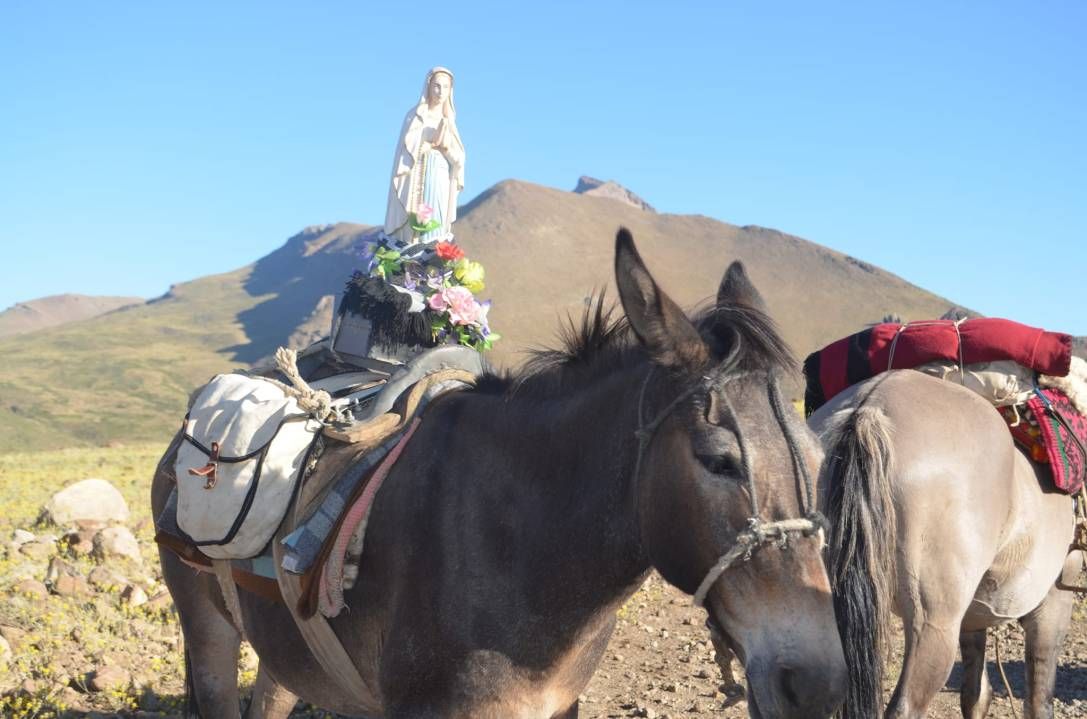

Everything reminds him of the Ailinco festival: “It was a summer gathering where lost animals were handed over, He asked if they had seen a cow, another said that he had an extra animal, that was the famous rodeos. A wealthy man of that time, a certain Urrutia, donated the ranch for the chapel and that is where the Festival of the Virgin of Lourdes in Ailinco was born, all with the presence of Chilean buyers. What if they smuggled everything in? All the better.
When he had to go on a mission in the 70s, in addition to the Trans-Andean ski mail carriers, he was also impressed the keenness of Chileans to detect the presence of the police. I could be in the chapel talking about animals and suddenly hear one say “one is coming” just by noticing the shine of the sun on the shield on the chesteven if it was on a hill an hour’s walk away.
Don Isidro recommends reading a book available in Neuteca. It was written by the Spanish Ignacio Prieto del Ejido, who had a general store in Varvarco between 1918 and 1922.
He describes with surprise what life was like back then, the wild beauty of the landscapes, the steps, the trade, the Chilean currency that circulated and he wonders how far this far-flung southern wonder could grow if it had good roads, schools, if the railroad arrived and if the government promoted the delivery of fiscal lots. He also tells how He was assaulted in the warehouse by five Chilean banditss that during their escape they killed a policeman at the border. After chasing the thieves in Chile in the towns of San Fabián and San Gregorio, he managed to identify one and left the matter in the hands of the police, but as there was no extradition request, he was not transferred to Argentina. Later, the Spaniard returned to Buenos Aires. The book is titled The novel of Patagonia.
¡
The war on the poncho
Isidro relates that back in 1780, Ambrosio O’Higgins, father of Bernardo, Liberator of Chile, was in charge of maintaining peace with the indigenous people of the Arauco border based in the fortress of Chillán. “To keep the warlike Araucanians calm, he establishes a fort in Antuco to control the passage through Pichachén. Knowing the indigenous mentality, their industries, trade and relations with the Spanish, he submits to the government of Santiago a proposal addressed to the King of Spain, so that he approves his actions in order to keep the warlike tribes at bay. from the south.
To one of his initiatives, he attaches great importance: ‘‘Prohibit the use of the poncho in the Kingdom.’ And he gave his reasons: the Pehuenche indigenous fabrics were famous for their quality and the main object of barter, whether food or weapons, above all, to and from the Buenos Aires pampas, giving this trade a very good economic entry, He wrote. “For many years, anyone who went to Chile from the north of Neuquén was always asked to bring one, they were so good,” he says.
